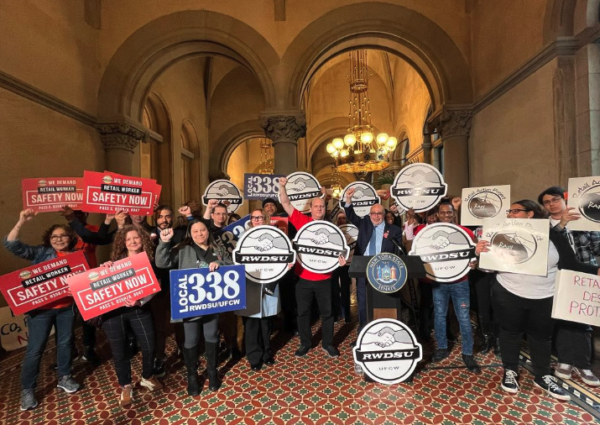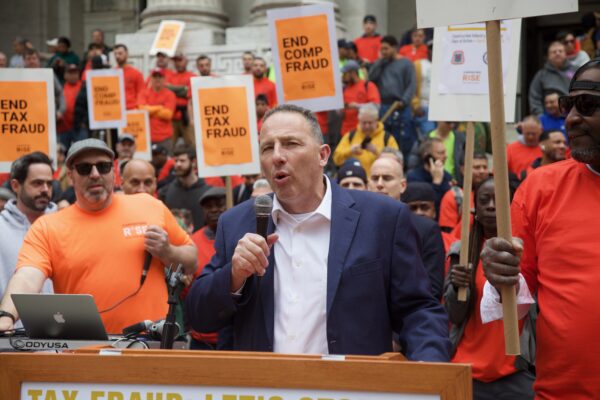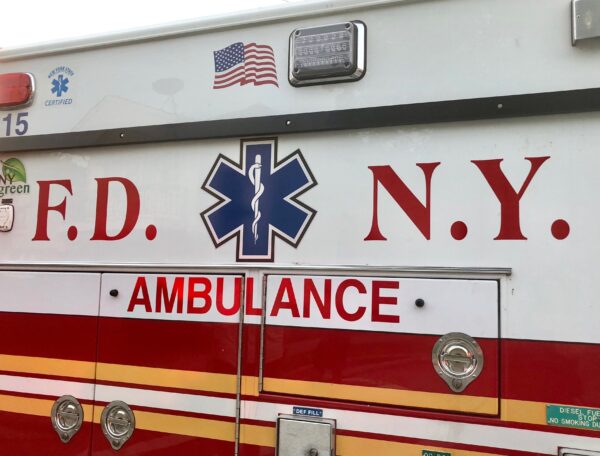
New York, NY – The International Association of Fire Fighters [IAFF] may have already put their eggs in Senator Joe Biden’s basket, just as the NY Hotel & Motel Trades Council has done for Mayor Bill de Blasio — but we shouldn’t expect to see more unions rushing to endorse candidates for the 2020 Presidential Election.
That’s according to one of the most dynamic labor leaders this nation has produced in a long while.
In 2016, the Association of Flight Attendants-CWA was among a minority group of unions who decided to back progressive insurgent candidate Bernie Sanders over anointed establishment heir Hillary Clinton.
Most habitually went with the establishment candidate.
Despite early presidential endorsements from the IAFF and HTC, Sara Nelson, head of the AFA, doesn’t believe unions will be doing business as unusual ahead of the 2020 vote.
“The difference in 2020, is that unions are taking a different approach to the endorsement,” Nelson recently told LaborPress. “From my perspective we should be focused on what’s happening in the workplace — and organizing and building on the momentum of the strikes that have been bigger and broader and produced more wins than at any time in US history. Between now and 2020, the landscape could change quite dramatically around what sort of power the American worker actually has.”
Three years ago, while an alarming number of rank and file members where openly telling United Steelworkers head Leo Gerard that they weren’t buying Clinton’s act — NAFTA had burned them too badly; so they were gonna bet on this guy Trump — others were clamoring for labor leaders to buck the system and back Bernie over the Democratic Machine.
Ultimately, the status quo held, and the rest is the Trumptonian nightmare — replete with its union-busting NLRB and tax breaks for the rich — that American workers are suffering through today.
Next year, however, could actually be a different story with working people actually calling the shots and candidates scrambling to follow along.
“As workers start to understand their power in the workplace and understand the power they can have in unions — and even workers who have been denied the right to join unions because of court decisions that say they’re not employees or some other gig economy baloney — people are not accepting that,” Nelson says. “They’re stepping up and fighting back and getting engaged in the Labor Movement and learning how to be active participants in democracy. And that will have a very different effect on the way this election moves forward.”
While that remains to be seen, Nelson also believes that labor leaders are, in fact, already changing their relationship to presidential politics.
And maybe they are. The AFL-CIO did pass resolutions in 2017 loudly declaring the the days of reflexively opting for the “lesser of two evils” are over.
Says Nelson, “The leadership of the labor union is taking a different approach — and that is requiring the candidates come to the unions — rather than feeling that they need to show allegiance to a candidate. Setting up a set of principles that require those candidates meet certain metrics, which includes, in many cases, getting on the shop floor or into the workplace with workers. Essentially, walking in their shoes and understanding those issues.”
For Nelson, “It’s really more about the candidates coming to labor than labor coming to the candidates.”
“I think we’re also going to see a much later endorsement process in this election,” she says.
We’ll see.



